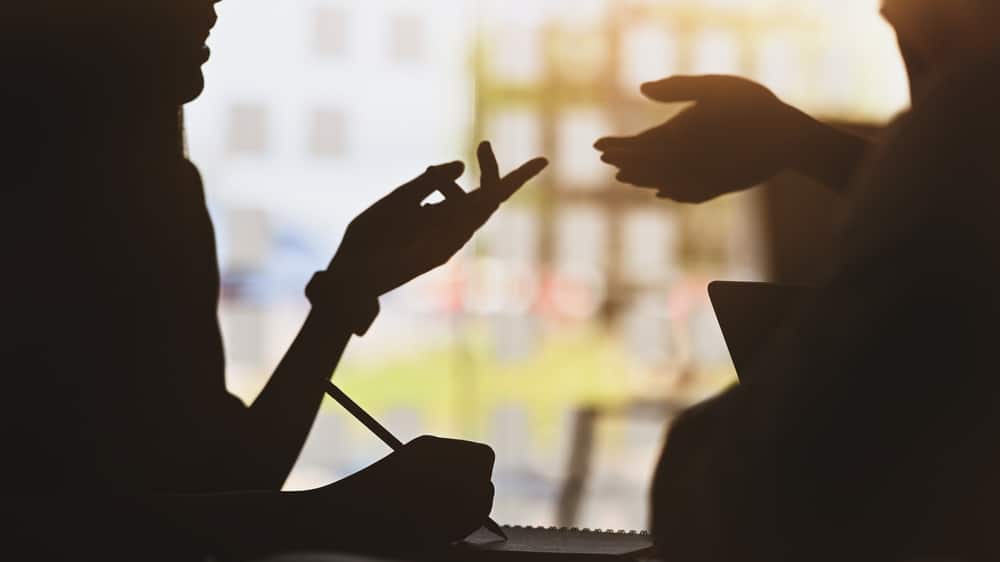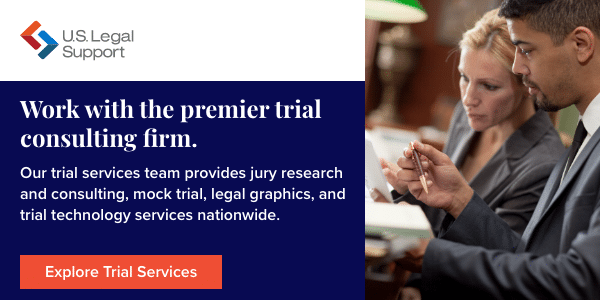How Jury Consultants Analyze Nonverbal Cues

People are often advised to don a “poker face” when entering a court of law. The thinking is that suppressing overt reactions is a way of showing one’s objectivity.
However, most people aren’t able to hide their feelings entirely. When legal teams try to understand their juries, it’s absolutely critical to analyze all forms of nonverbal communication for deep insights.
Below, we’ll provide some context for the ways nonverbal communication manifests in courtrooms before diving into how jury consultants can leverage it to power legal strategy.
Understanding Nonverbal Communication in Courtrooms
Nonverbal cues can speak volumes about how someone thinks or believes, whether or not they’re trying to express themselves. Cues such as postures, gestures, expressions, and tones can give analysts useful insights into how a given juror is likely to think about a case.
Understanding what someone might be thinking but not saying is especially important in jury selection. It unlocks both what they are really feeling and that they are trying, at some level, to conceal it. This could lead to a different line of questioning or follow-ups to see if such deeply held thoughts would be made explicit under the right circumstances.
Or, if not, this analysis could show that (and how) a juror is going to keep their cards close to their chest.
How Jury Consultants Decode Nonverbal Cues
Much of the existing literature on nonverbal communication in the courtroom focuses on the ways that witnesses’ testimonies should be analyzed. Savvy analysts can and should apply these same techniques to jurors to create a fuller picture of juries’ likely predilections.
In particular, these are some of the most common cues jury consultants focus on:
- Body language – Elements such as posture, gestures, and aesthetic choices (i.e., wardrobe, cosmetics) can impact individuals’ perceived credibility in the courtroom.1
- Facial expressions – Recent research into the benefits of expression highlights its positive impacts on likability.2 Exaggerated attempts to keep a straight face could be a bad sign, suggesting that jurors are actively suppressing natural emotional reactions.
- Eye contact – Eye contact is associated with credibility, and avoidance can be seen as discrediting.3 Witnesses who take pains to avert their gaze could be red flags.
- Vocal tone – Perceptions of the judges’ tone have been shown to have significant impacts on defendants’ emotions.4Jurors can also be influenced by tone, and their own tones and reactions can communicate emotional truths they’re withholding.
These are far from the only nonverbal cues that can be used to understand juries better.
The general principle motivating this kind of analysis is that the things jurors do and the way that they compose themselves can be just as fruitful as the things they explicitly talk about.
Monitoring Nonverbal Communication During Trials
All of the best practices in jury research and selection revolve around unlocking as many insights as possible to paint the fullest and most accurate picture of who jurors are. Jury and trial consultants and analysts need to pay close attention to how jurors hold themselves and behave in a court of law.
During a trial or voir dire, nonverbal cues like those listed above can and should inform any challenges raised. And what jurors are thinking but not saying should inform what kinds of presentations counsel makes.
For example, facial expressions suggesting curiosity or a shift from negative to positive emotions could signal that a given strategy is working and should be replicated, both in the ongoing trial and in future ones that have jurors with similar profiles.
One advanced practice to consider is including information about nonverbal communication in notes and transcription related to legal matters. Including detailed descriptions of facial and other communicative gestures, analogous to stage directions in a script, can provide analysts with much more information than transcriptions limited to verbatim dialogue.
The Future of Nonverbal Analysis in Litigation
Looking ahead, advancements in artificial intelligence (AI) and other emerging technologies will provide many more diverse and complex ways to analyze nonverbal communication.
The evolution of AI in litigation has given legal teams access to more processing capabilities, making collecting and analyzing nonverbal cues easier and faster. By feeding models more information about facial expressions and postures (and what they have correlated to in the past), the predictive power of AI has become increasingly accurate.
Jury and trial consulting services that leverage this technology make more insights available, faster, to supercharge strategic jury selection and research. Legal teams integrating external experts to better understand their juries can count on more accurate data to inform decisions.
Take Advantage of Jury Consulting Experts
Understanding jurors is about more than listening closely to what they say. It requires paying close attention to everything else they’re communicating through nonverbal cues. This essential form of analysis unlocks actionable insights that can power better juror selection, trial presentations, future preparation, and legal strategy.
U.S. Legal Support provides jury consultation services to help legal teams understand, prepare for, and appeal to juries. Our experts leverage nonverbal communication analysis and the most advanced technological tools to optimize all elements of your approach.
To learn more about our trial services and how we can help, get in touch today!
Sources:
- The Aquila Digital Community. The Power of Presentation. https://aquila.usm.edu/cgi/viewcontent.cgi?article=2925&context=dissertations
- Scientific Reports. Being facially expressive is socially advantageous. https://www.nature.com/articles/s41598-024-62902-6
- Psychiatry, Psychology, and Law. The use of nonverbal communication when assessing witness credibility. https://pmc.ncbi.nlm.nih.gov/articles/PMC10916926/
- Frontiers in Psychology. Inferring influence of people’s emotions at court on defendant’s emotions using a prediction model. https://pmc.ncbi.nlm.nih.gov/articles/PMC10025348/

Editoral Policy
Content published on the U.S. Legal Support blog is reviewed by professionals in the legal and litigation support services field to help ensure accurate information. The information provided in this blog is for informational purposes only and should not be construed as legal advice for attorneys or clients.


